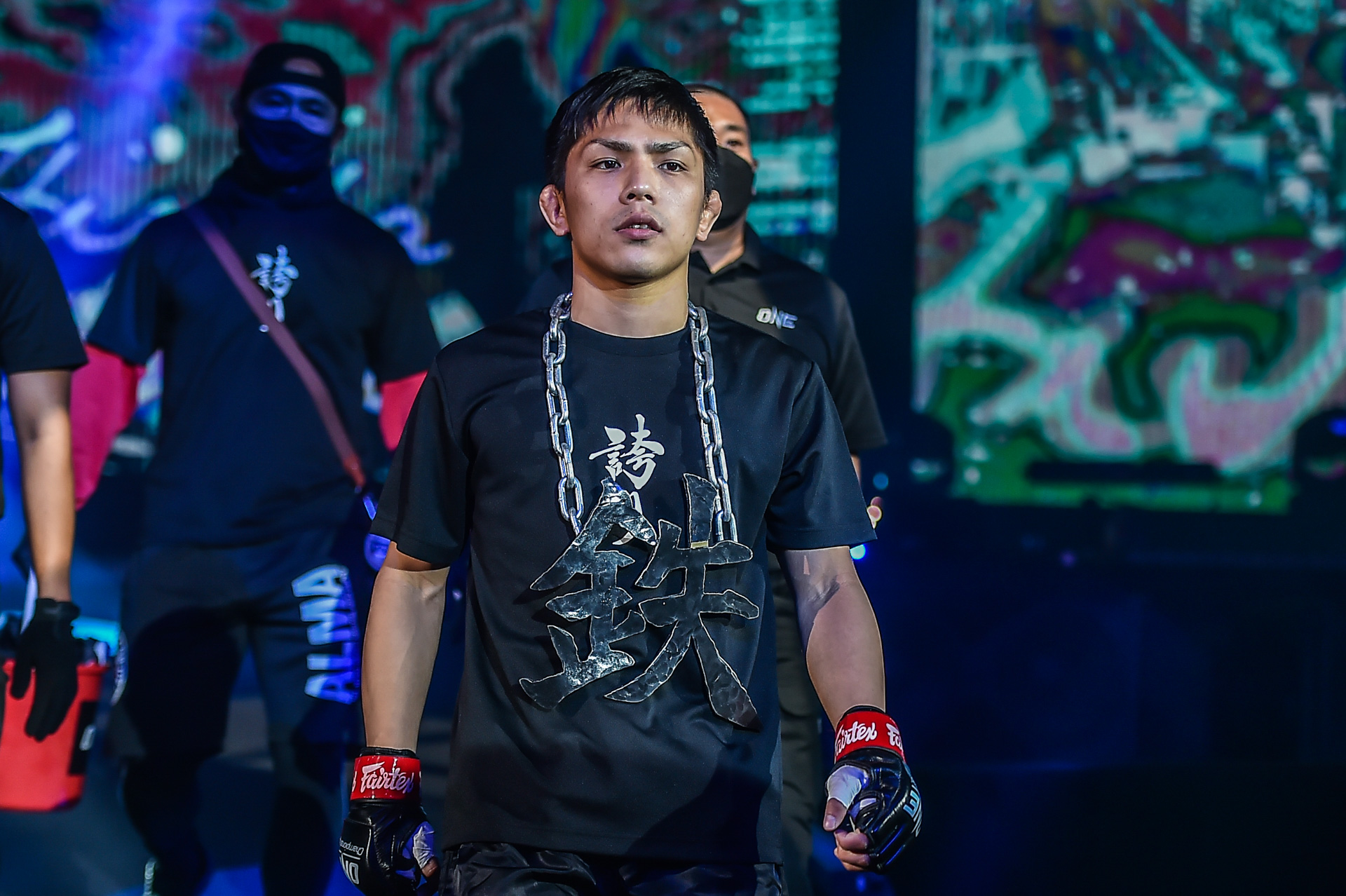‘I’m So Jealous’ – Hiroba Minowa Breaks Down Bokang Masunyane’s Biggest Advantage

Japanese rising star Hiroba Minowa knows that Bokang Masunyane is a unique force in ONE Championship’s strawweight MMA division, and he’s preparing to deal with that threat on Friday, July 22.
The #3-ranked contender will face #2-ranked Masunyane at ONE 159: De Ridder vs. Bigdash, and he views the South African’s athleticism as a truly rare phenomenon.
In fact, Minowa can’t help but admit his envy leading up to their matchup in Singapore, where he anticipates a steep learning curve as he attempts to navigate past “Little Giant.”
He said:
“[Masunyane] is an amazing athlete. He has the best physical ability. He has the best agility. Even if we Japanese train hard, we cannot achieve his level of agility. I’m so jealous.
“He has something I have never seen or experienced before. I will see how much I can adjust.”
Despite being in awe of Masunyane’s assets, Minowa expects to play his own trump card.
The 23-year-old from Saitama started his mixed martial arts training at just 12 years old and has grown up blending every style so that he’s comfortable in all ranges.
Above all, he believes this well-rounded skill set could be the great equalizer when he battles a former wrestler in “Little Giant” at ONE 159.
Minowa said:
“The benefit [of training from such a young age] is that my fighting style is very balanced. If you have another martial arts backbone, that is your strong point, but it’s also a weakness.
“I started training for most of MMA skills at the same time, so my skill set is higher than others who started MMA after other sports.”
Hiroba Minowa Using His Own Experience To Help The Next Generation
After being brought up in MMA, Hiroba Minowa knows the sport is a powerful tool to improve the lives of young people.
With that in mind, he’s been supporting the coaches at a new gym, with a focus on teaching the next wave of athletes to gain maturity and grow their skills.
The Japanese competitor wants to share what he’s learned and provide a framework for the local youth to achieve more than those who came before them.
He explained:
“People called us the ‘next generation,’ but I didn’t feel that way. Also, it was uncomfortable to get called [that] because there’s no system so that youngers can go beyond elders. So, I wanted to build a culture where young fighters can beat veterans. If kids say they want to start MMA, I want to give them an opportunity to try.”



















